Trevor Brazile finished 2017 39th in the PRCA world heading standings with $36,420 won with heeler Patrick Smith. The showing was his worst since 2005, despite a WNFR qualification in the tie-down roping and a steer-roping finals qualification. Brazile is known for preaching short memories, but he has been careful to evaluate what happened in 2017 to be sure it doesn’t happen again. He and Smith are geared up for 2018, making big adjustments to their practice schedules and time budgeting while facing the hard reality of surgery for a nagging injury.
Q: Reflecting on 2017, what happened in the team roping and why?
A: Overall, I can say I do three events, and I didn’t start off well in any of them. That’s different. Usually I’m used to one not working at any certain time and fixing that as I go. It started off just bad. It wasn’t that we didn’t get in to the bigger winter rodeos—if you’re doing bad at the other ones, you’d do bad at the good ones, too. I have to fight myself off from using excuses. There are a lot of things that come to mind, but even when things looked good there were things that I could have done better. The less I use the excuses, the quicker I get back to where I want to be.
Q: Did you feel like you did everything you could have in the practice pen?
A: Definitely not as much as in years past. I found a way to justify it through injuries I think. I felt like if I practiced the way I used to practice, I wouldn’t have been able to finish the year out. I went back and forth with that, and I think it’s a fine line in there. You don’t have a crystal ball and you don’t know what extra practice would do until it’s too late. I’ve been putting off an elbow surgery that I need to get done no matter what this year. I’ve put it off since 2014. I’m trying to find a time in there where you can do it. That’s the one thing about what we do—it’s hard to take time off. You can’t rodeo by phone when you’re hurt.
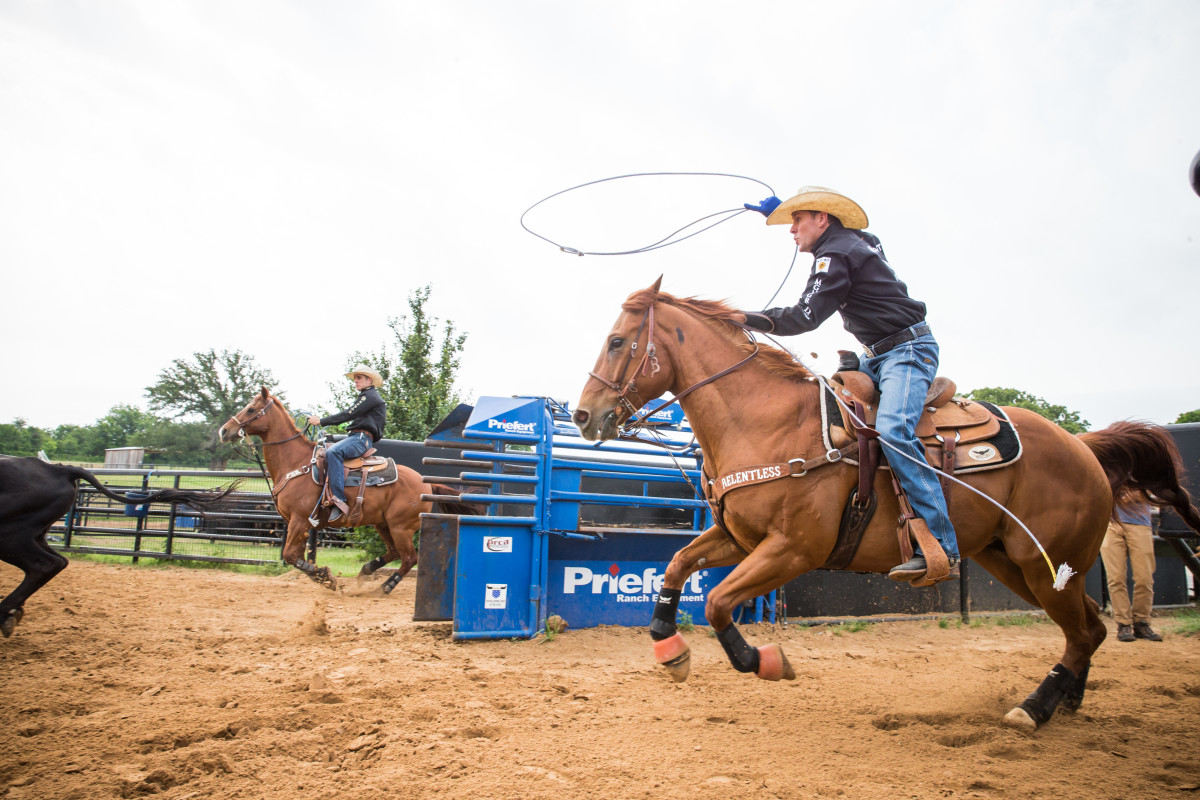
Q: Describe the feeling of watching Tuf win the all-around. Can you weigh the percentage of you that was disappointed you didn’t win it, versus the percentage that was excited for him?
A: I was so excited for him. It seems like at times I had to talk him into doing extra events. I knew he knew it took away from his tie-down some. It’s the price you pay and you learn you have to let it take away less and less.
When you have a year like I had, which was barely better than 2005 in my opinion—I was disgusted with my year more than the outcome. I could have won the all-around and won whatever, but I judge myself on opportunity. The last few years, the bar has been raised to $500-some-thousand, and I fell $200-some-thousand short of that. I felt in my mind that if I’m being honest, I didn’t deserve to win it that year. I rodeo for a world championship in every event that I do.
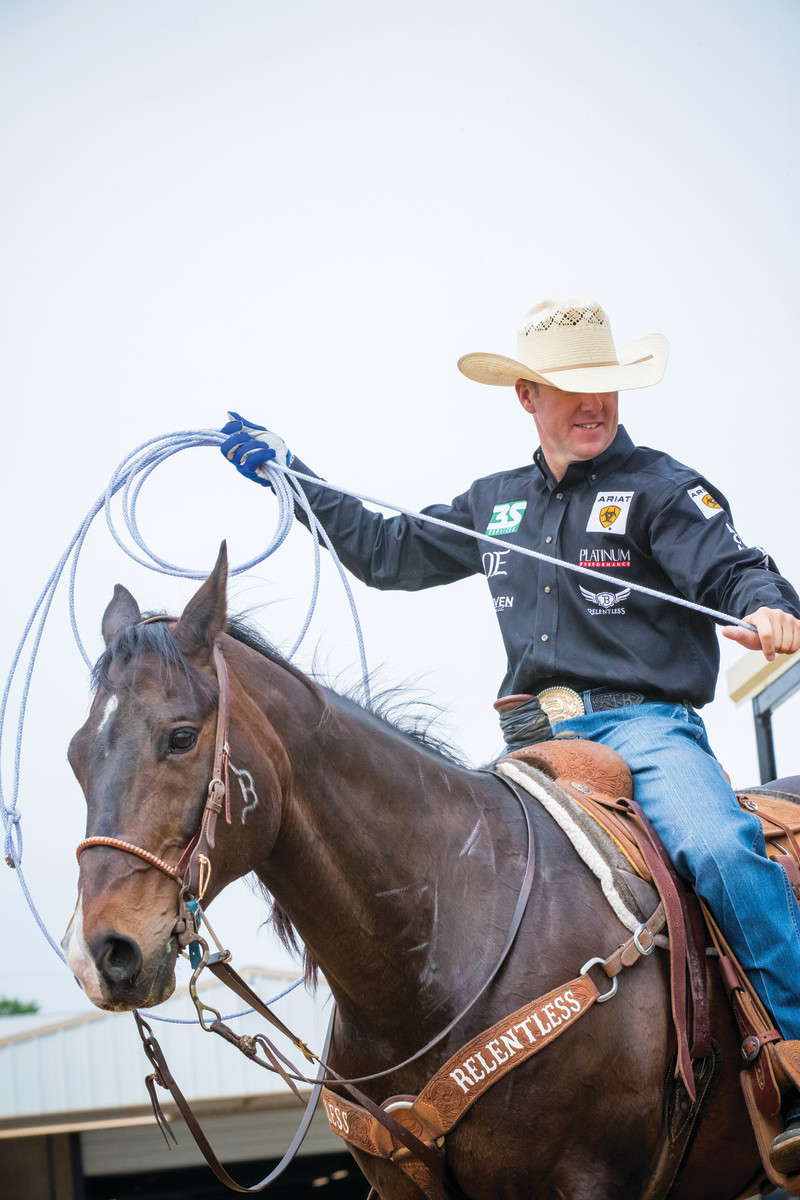
Q: How much re-evaluating have you done heading into the new season?
A: Me and Patrick had a meeting about it just yesterday—what do we do? We have to make the effort to practice together more. Not just practice—practice together. Every year we have bigger families or the oilfield service company, or the Relentless line that I’m working on—it all takes time. I want to do all those things well. But at the end of the day, the resource that’s lacking is time. We need to not rodeo for convenience, we need to be rodeoing to win. The distance is about an hour and a half between us. It doesn’t sound that far, and it never sounded far to me, until we do have all the irons in the fire. We have three kids, we have baseball, we have basketball. Then all of a sudden it sounds like an impossible task. But, I have an indoor arena that tips the scales my direction a lot. So he has to come over when it’s wet in Texas.
Q: How many head of practice steers do you have at any given time?
A: I think I have 25. I’ve been buying real Mexicans and, man, it’s nice. I’ve never roped Mexicans in my career, and it’s awesome. I always get mine from Matt Sanchez. I want them to have pretty horns, and he has them. I don’t want them just to have an M brand. I want them to have a wow factor on their horns. I started that getting ready for the Finals. You couldn’t find anything with that kind of horns.
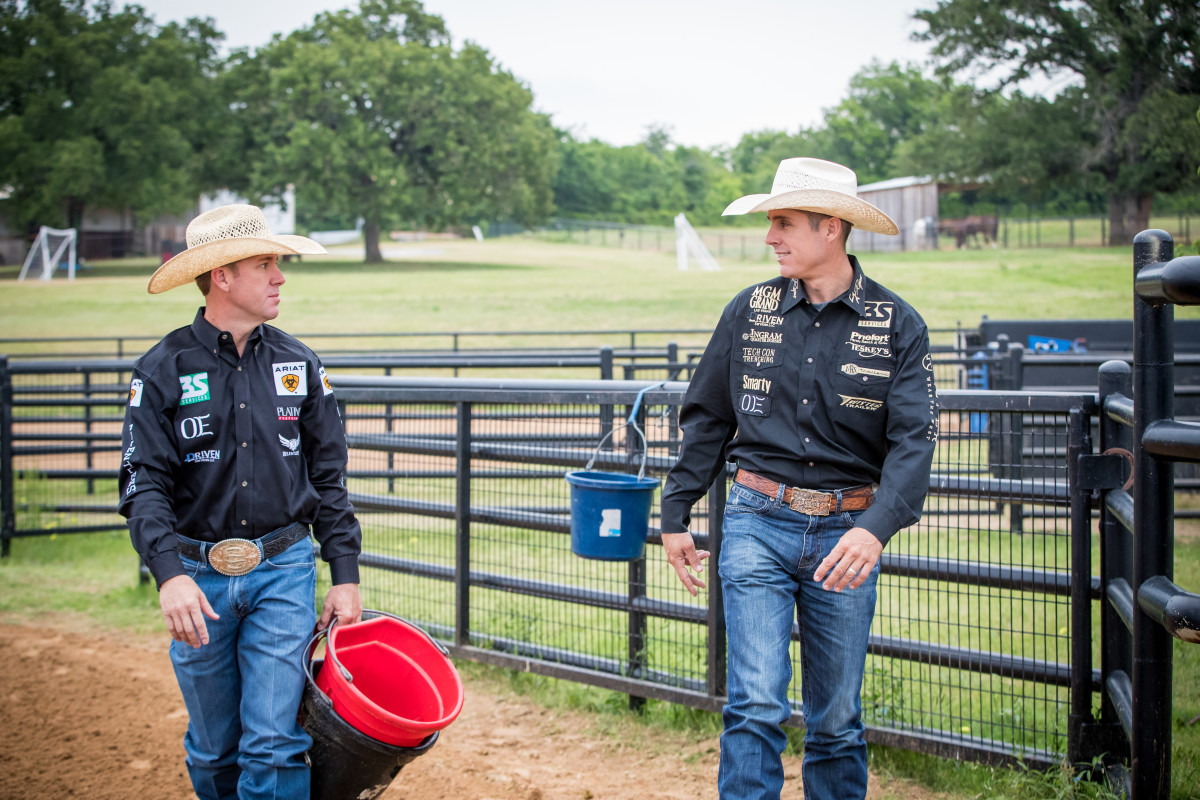
Q: What’s your average practice like?
A: That’s something that will get changed in 2018. There was never an average day. I’ve always worked on myself and made sure my horses were that much better than everybody else’s. In the calf roping, I’m always roping around Tuf, Clif, and Clint (Cooper). I see them all the time. I guess I have taken that for granted as far as how much that contributed to my success. It made me practice at a higher level. It didn’t let me just go make dust. Patrick and I decided that it’s not enough for us to practice together anymore. I need to practice with a great header. I need to see somebody who keeps me out of my comfort zone. Just like I tell my students—you better not be the best person in the practice pen or you’re only making everybody else better. I’m taking my own advice this year, and I want to get around better headers. I want to get around guys who do it for a living. That’s probably the thing I got the most out of in my meeting with Patrick. I want a conglomerate. Just like the way I started. I want to go and see what everybody does good. Not everybody does the same thing good. When it’s in that kind of dynamic, we can draw off each other. Nobody is really losing. It’s one of those things where the high tide raises all ships.
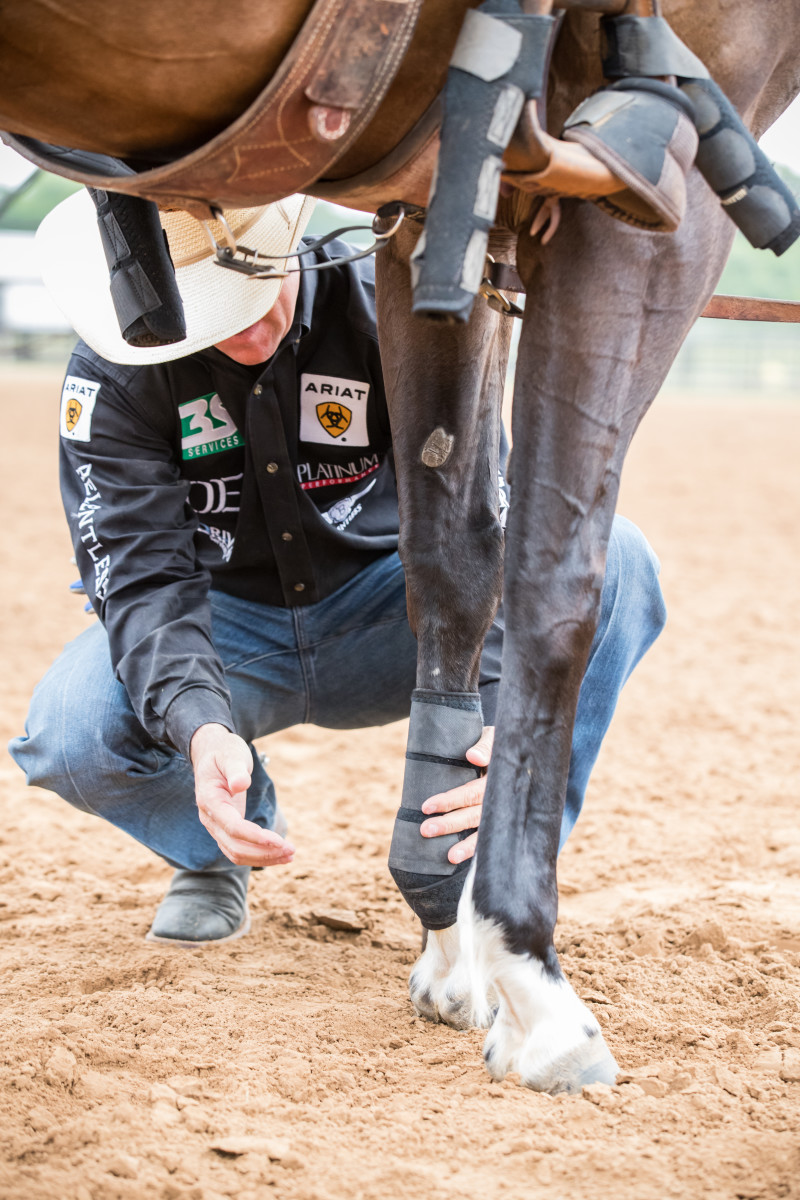
Q: How busy do your Relentless brands keep you?
A: That has become one of my passions. It’s one of those things, like rodeo. You’ll never be done getting better. I constantly want to give ropers the best opportunity to win. It’s also doing what I do and constantly testing products. It goes hand in hand. The designing takes more time and travel. I can’t hold a phone to my ear that long because of my elbow, so I got AirPods that have helped. Being on the phone gets old, but if you know you’re headed toward better products and everything is getting better because of it, it’s a necessary evil. 2018 has to be a better time-budgeting year with all of it.
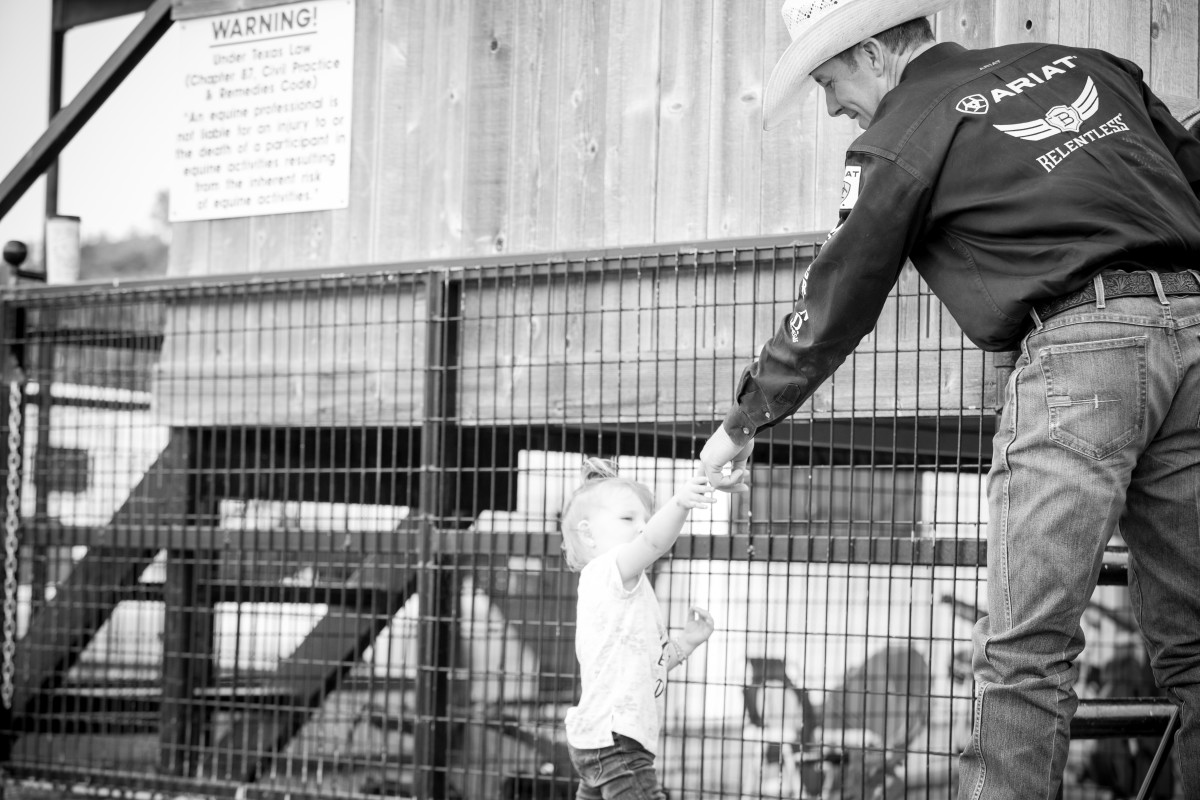
Q: Open ropers sometimes get a bad rap. What do you think ropers and producers can do to work better together?
A: That’s a good question. I’m not a big every-time-jackpotter. I don’t know exactly who is getting paid what and where. That doesn’t sit and burn my guts like it does other guys. It takes away from their ability to win when they do that. From the outside looking in, I think that those two groups are necessary in building the next generation of team ropers. If those young guys and girls don’t have that icon to aspire to be, I feel like you can’t build an industry on that. You can’t build an amateur basketball league without the NBA. There’s got to be the ladder that goes up. But my hat is off to every producer. It’s a special person who can deal with the public. Everyone has problems and everyone wants to tell them to you. I know how many producers there are, and we really need them.










